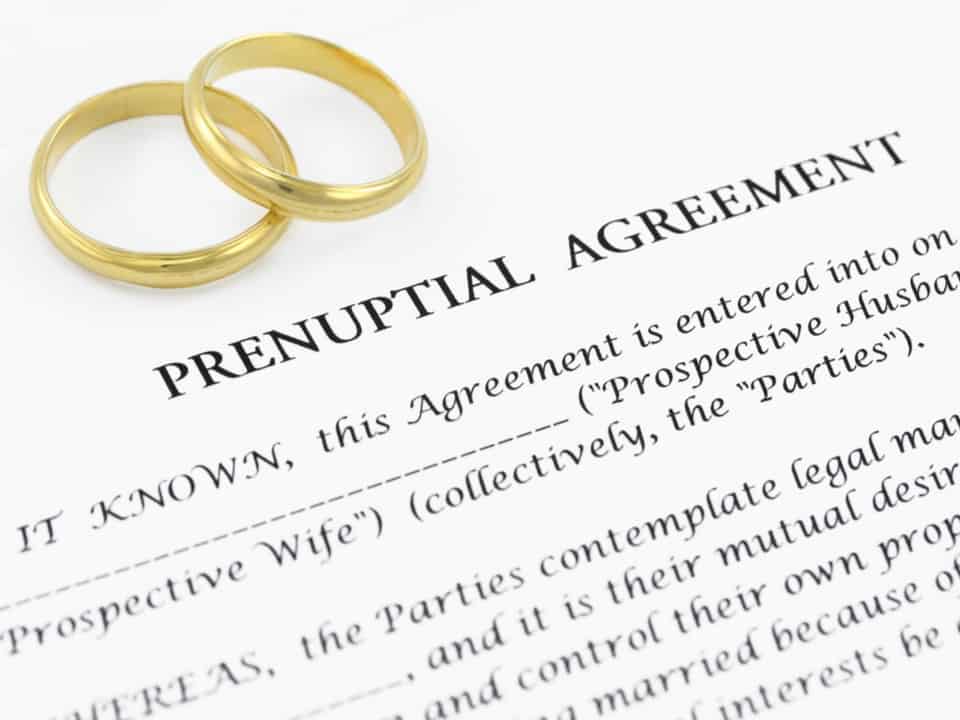Marriage is not just a romantic partnership—it’s also a financial and legal union. While discussing prenuptial agreements may feel unromantic, they can provide clarity and protection for both partners. Understanding what a prenup entails, its benefits, and whether it’s right for you is crucial.
What Is a Prenuptial Agreement?
A prenuptial agreement, commonly called a “prenup,” is a legally binding contract created by a couple before they marry. It outlines how assets, debts, and other financial matters will be handled during the marriage and in the event of divorce or death.
What Can a Prenup Cover?
Prenups are customizable and can address a variety of financial issues, including:
1. Division of Assets and Debts
- How property acquired before or during the marriage will be divided.
- Protection of family heirlooms, inheritances, or business interests.
- Responsibility for existing or future debts.
2. Spousal Support
- Whether one spouse will receive alimony if the marriage ends.
- Setting limits or waiving spousal support altogether.
3. Financial Responsibilities During Marriage
- Agreements about managing joint accounts, household expenses, or investments.
4. Estate Planning
- Ensuring certain assets go to children from previous relationships or other designated beneficiaries.
Note: Prenups cannot address child custody or child support; these are determined by the court based on the child’s best interests.
Who Should Consider a Prenup?
While prenuptial agreements aren’t necessary for every couple, they can be particularly beneficial for:
1. Individuals with Significant Assets or Income
If one or both partners have substantial wealth, a prenup can protect these assets and clarify what remains separate property versus marital property.
2. Those with Business Interests
A prenup can safeguard a business, ensuring that it remains operational and unaffected by divorce proceedings.
3. People with Children from Previous Relationships
Prenups can help protect assets intended for children from a prior marriage or relationship.
4. Couples with Unequal Financial Standing
If one partner brings significantly more assets or debt into the marriage, a prenup can establish fairness and manage expectations.
5. Individuals with Inheritance Concerns
A prenup can preserve family wealth or specific inheritances, ensuring they remain with the intended recipient.
Benefits of a Prenuptial Agreement
- Clarity and Transparency: Couples openly discuss finances, fostering trust and understanding.
- Protection of Assets: Safeguards personal property and avoids unintended outcomes in divorce.
- Avoiding Disputes: Reduces the likelihood of lengthy and costly legal battles if the marriage ends.
- Customization: Tailors financial arrangements to the couple’s unique circumstances.
- Estate Planning Benefits: Complements wills and trusts, ensuring financial plans are aligned.
Potential Drawbacks
- Perception of Distrust: Some see prenups as a sign of doubt about the marriage’s longevity.
- Emotional Strain: Discussing worst-case scenarios can be challenging and uncomfortable.
- Legal Challenges: A poorly drafted prenup can be contested or invalidated in court.
- Changing Circumstances: Prenups don’t always account for significant life changes, such as career shifts or having children.
Legal Requirements for a Valid Prenup in the U.S.
To ensure a prenuptial agreement is enforceable, it must meet specific legal standards, which vary by state:
- Written Agreement: Prenups must be in writing to be legally binding.
- Voluntary: Both parties must enter into the agreement willingly, without coercion or duress.
- Full Disclosure: Each partner must fully disclose their assets, debts, and income.
- Fair and Reasonable: The terms should not be excessively one-sided or unfair at the time of signing.
- Signed by Both Parties: Both partners must sign the agreement, typically in the presence of a notary.
Some states, like California, require that both parties have independent legal counsel to ensure fairness and understanding.
Steps to Create a Prenup
- Open the Conversation Early: Bring up the idea of a prenup well before the wedding to avoid unnecessary pressure.
- Consult Separate Attorneys: Both partners should have their own lawyer to review the agreement and protect their interests.
- Discuss Financial Goals: Outline your financial priorities, responsibilities, and expectations.
- Draft the Agreement: Work with attorneys to create a legally sound and customized document.
- Review and Finalize: Ensure all terms are clear, fair, and meet state legal requirements before signing.
Alternatives to a Prenup
If a prenuptial agreement isn’t the right fit, consider these alternatives:
- Postnuptial Agreement: Similar to a prenup, but created after the couple is already married.
- Cohabitation Agreement: For unmarried couples, this outlines financial arrangements during the relationship.
- Separate Property Trusts: Establishing trusts to protect specific assets.
Final Thoughts
A prenuptial agreement isn’t just about preparing for the possibility of divorce—it’s about creating financial clarity and ensuring both partners feel secure. While not every couple needs a prenup, those with significant assets, complex financial situations, or previous commitments (like children or businesses) can benefit greatly.
If you’re considering a prenup, consult an experienced family law attorney to ensure it’s fair, enforceable, and tailored to your needs. Open communication and planning can strengthen your relationship while protecting your future.
